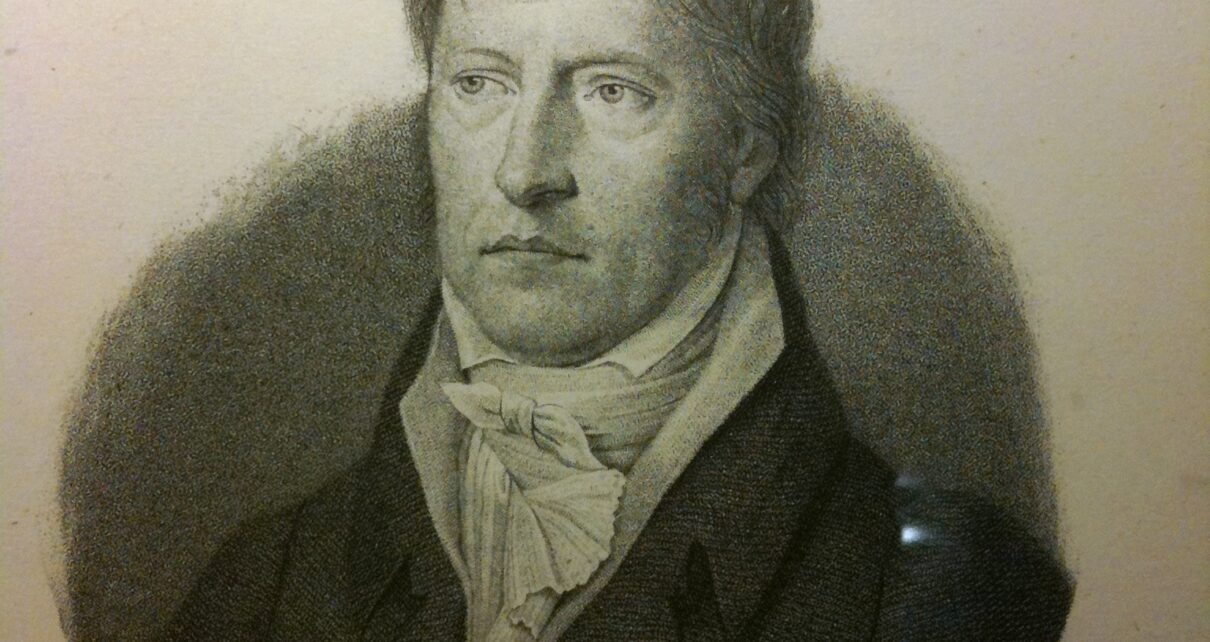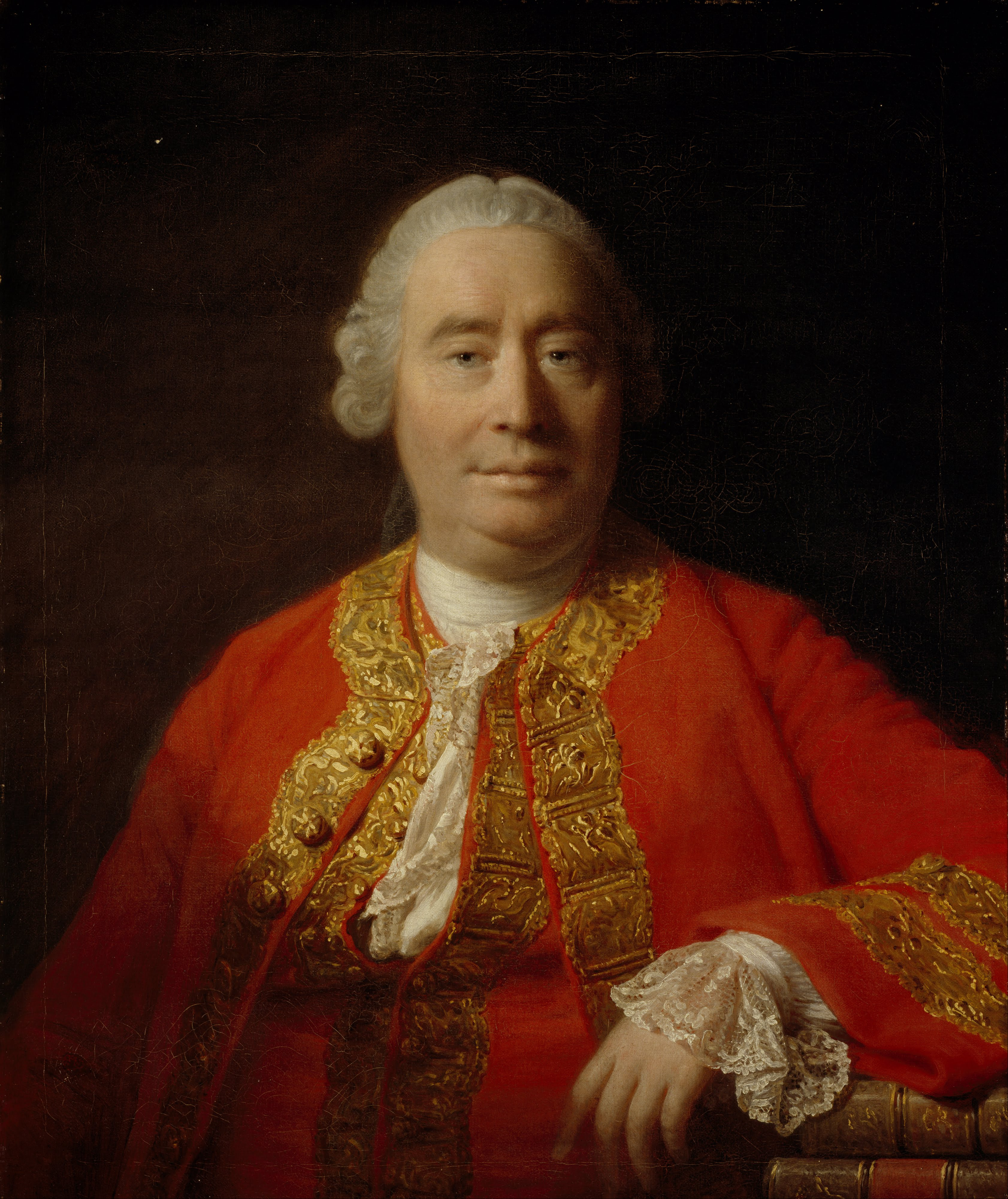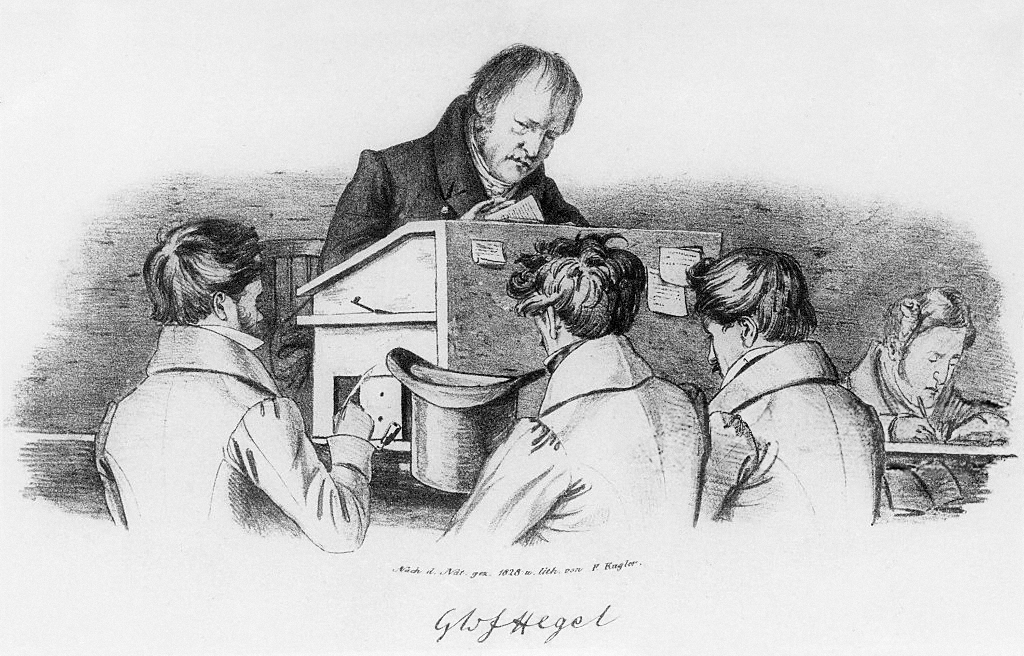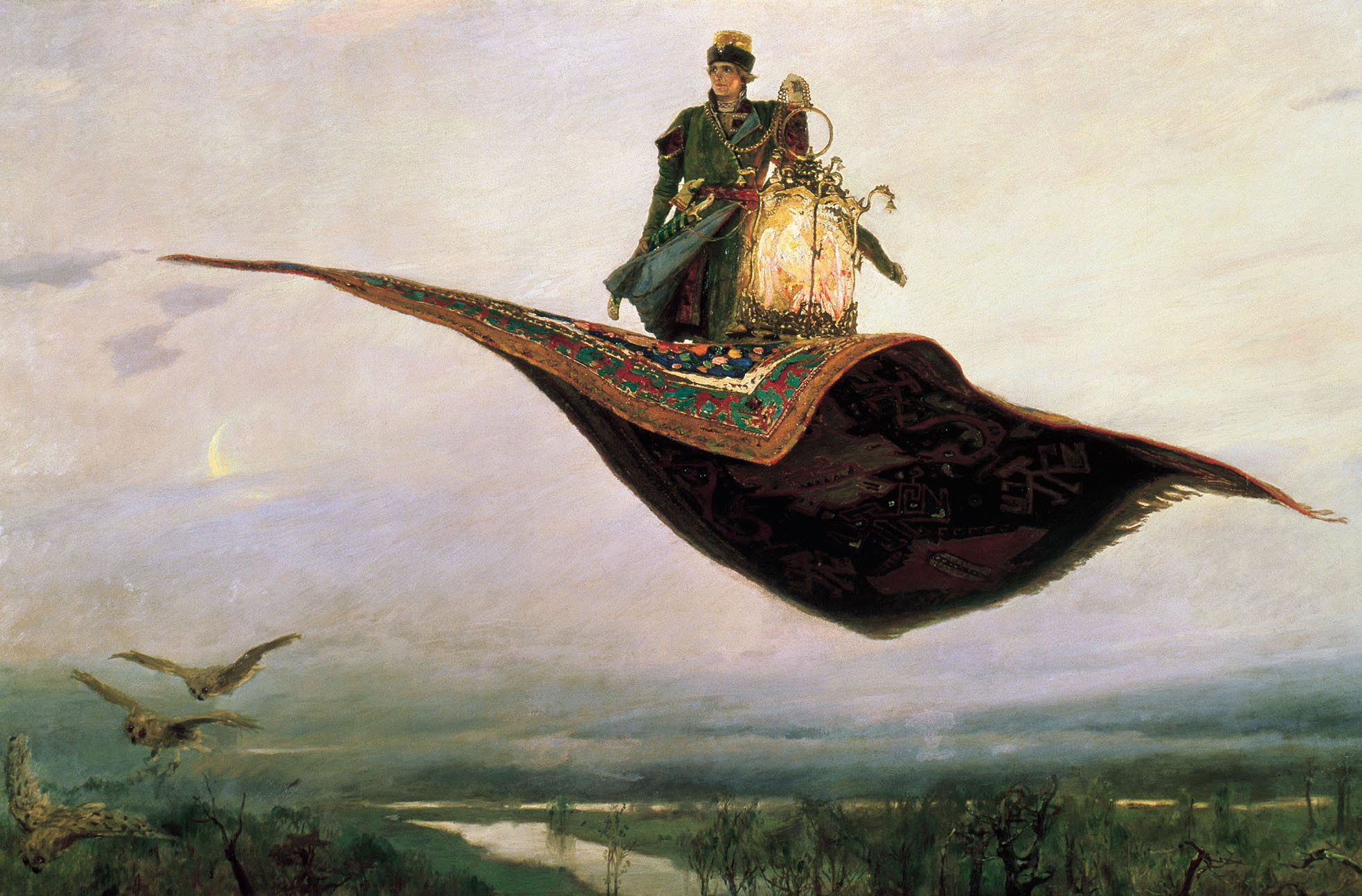The following is the first of a three-part series. The earlier article by Prof. Hyman to which the author replies can be found here.
Gavin Hyman’s ‘The ‘New Hegel’ and the Question of God,’ in the Journal for Cultural and Religious Theory [1] raises the age old and yet still timely question about the knowability or otherwise of God. More particularly, it brings together some of the prominent thinkers from recent continental philosophy who are re-engaging with the work of Hegel in the wake of Gillian Rose’s seminal book Hegel Contra Sociology, published in 1981.[2]
Hyman argues powerfully that these ‘new interpretations’ of Hegel’s conception of God and the absolute move us in important ways beyond the traditional ‘left’ and ‘right’ divide in Hegelian scholarship, whilst, at the same time, also reproducing it. His claim is not that these thinkers have failed in their attempts to avoid conventional readings of Hegel, but rather that the tension between them is the route to a more ‘genuine’ conception of Hegel’s God. This more genuine conception, says Hyman, is a (new) Hegelian thinking of God found in what he calls ‘the necessity of the logic of the both … and.’ [3] In what follows, I will suggest that having correctly identified the necessity of both … and in avoiding one-sided dogmatic resolutions of aporetic oppositions, it is to a different conception of the logic of such a necessity that we might look in order to find in Hegel, and in Rose, the way in which the absolute, or God, is knowable and can be thought.
The problem identified by Hyman has its roots in the 2500-year Western philosophical tradition regarding the identity of God. Since Aristotle, God has been fixed as the unchangeable, something carried over into the religions of the Book. In comparison to the unchangeable, human thought and material existence were relegated to the merely changeable at best and to error and sin at worst. One could argue that this dispute has always been as political as it has been religious given the authority and power of legitimization that the latter has assumed over the former.
It is in Hegel that this relation between religion and politics becomes philosophical science, and the fate of this scientific treatment of state and religion is the now familiar divide between ‘left- and right-wing’ Hegelianism. The former emphasises a radical political interpretation of the absolute dialectical movement of the Phenomenology, while the latter asserts an almost ahistorical theology of Hegel’s Science of Logic with its culmination in the absolute idea. Thomas A. Lewis has recently shown that despite the two centuries since, there is still wide disagreement amongst interpreters as to this question of how to understand God in Hegel.[4]
The publication of Rose’s book was a significant intervention into these debates. In it, she argues that the left/right divide is an abstraction determined by a non-speculative reading of Hegel’s philosophy. Rose found a different way of understanding the significance of contradictions within the experience of contingency that both Kant and Hegel had exposed regarding the thinking of truth. In particular, she found that Hegel, far from being the dogmatic thinker that was widely assumed, had not resolved the difficulty of such contradictions, but rather allowed them their own unresolved truth as the Concept, Spirit, and the Absolute.
What I want to add to Hyman’s incisive analysis, is the way in which Rose’s thinking, and that of one her former students, Nigel Tubbs, not only retrieves the question of the identity of God politically, and the identity of freedom religiously, but also offers a re-education of their relation, a re-education that carries Rose’s boldest thesis, that Hegel’s philosophy is otiose if the Absolute cannot be known. Hyman’s examination of some of the more recent Rose and Hegel scholarship is my starting point.
I will summarize his reading of Rowan Williams and Slavoj Žižek and his argument for a conception of God that does justice to both readings. I will then return briefly to Rose as a springboard to Tubbs, who has recently argued that God needs to be understood as the education that resides in the logic of Rose’s and Hegel’s self-perficient negative experiences. Tubbs offers this theory, described below, by way of a new/old logic, a ‘logic of education’, that argues for a conception of God as education. His thinking is a contribution largely unrecognised in Rose scholarship.
But in a body of work spanning 30 years, he retrieves the central role that education has always had in Hegel’s philosophy and system, and more recently in Rose’s own retrieval of Hegelian speculative experience. Tubbs often comments that education is seen to be a poor relation in much philosophical work. Despite this, he opens up the challenging idea, in relation to Hyman, that it is only as education that God and freedom, transcendence and immanence, have truth absolutely.
Hyman’s New Hegel
The most significant thinkers, for Hyman, of the ‘return to Hegel’ in continental philosophy and religious thought are Rowan Williams, Slavoj Žižek, Catherine Malabou and Beatrice Longvenesse. Despite their many differences, he writes, these readings have certain arguments and themes in common. First, they constitute a reaction against the largely French reception of Hegel by figures such as Derrida, Levinas, Deleuze and Bataille who bequeathed the ‘textbook’ or caricatured Hegel of the Absolute. This Hegel is seen to represent some of the worst excesses of Western modernity. Second, they reject the work of the secular Hegelians such as Robert Pippin, Robert Brandom and Terry Pinkard, who ‘deflate’ the metaphysical task and significance of Hegel’s absolute to the extent that it loses its import in and for social and political thought.
Third, they distinguish themselves from the ‘left’ political and ‘right’ theological interpretations of Hegel that have dominated traditional studies by showing that Hegel anticipated such a divide and found ‘’a way beyond’[5] it. The subtleties of Hegel’s thought insist on the difficulty of knowing God in the equivocal relation of the ‘metaphysical and non-metaphysical, the transcendent and the immanent, the necessary and the contingent.’[6]
But, in the same way that the question of God divided traditional Hegelian scholarship, so, Hyman argues, do these new interpretations re-establish a similar divide; Žižek and Malabou through an atheistic ‘ontology of immanence’ and Williams through a ‘theistic ontology.’[7] This time, however, the divide does not give rise to mutually exclusive interpretations but ones which acknowledge and work with the necessity of transcendence and immanence as implicated identities. It is the nature of this Hegelian divide that Hyman is interested in pursuing as the route to a more ‘genuine’ account of Hegel’s God.
Williams, writes Hyman, sees the convergence of theology and philosophy in what, for Hegel, it means to think about thinking. The ‘grammar’ of God is ‘the grammar of thought.’[8] In other words, ‘we can’t think God apart from thinking ourselves; to think it as separate is to fail in thinking-as-such.’[9] Williams is faithful to Hegel, says Hyman, because he resists ‘both an undue separation between God and the world and also an unwarranted identification of God with the world.’[10] God’s self-sufficiency is not ‘a life lived “beyond” us that we can yet talk about’ because such an ‘“exceeding” of thought cannot itself be thought or spoken.’[11] Williams, says Hyman, is walking a fine line here regarding the theological integrity of transcendence but his aim is to bring Hegel’s insights to bear on the thinking of God in theology so as to trouble ‘any straightforward opposition between transcendence and immanence.’[12]
Žižek’s atheistic Hegelian God, writes Hyman, is close to Williams in that it also refuses the trap of dualistic thinking. The transcendent is an ‘inescapable feature of the immanent itself’[13] and whilst this might look like ‘a world history determined by the purposive guiding hand of the Absolute or Geist,’[14] its teleological necessity is rather the result of a retroactive contingency undermining necessity with its own logic of becoming. This logic, which makes transcendence ‘the result of its own [alienating] activity,’[15] is also the logic of Hegel’s absolute and his conception of God, ‘posited through our activity as its presupposition.’[16] Hyman calls this an ‘atheistic ontology’ because God is the ‘thought and activity of human subjects’ without being merely a ‘subjective ‘projection.’’[17]
God and human thought are mutually implicated such that as humanity becomes self-conscious through its idea of God in religion, so God becomes self-conscious in humanity. The finite and subjective element is Christ as a ’transubjective “it”’[18] exceeding or transcending humanity but only ‘in-through us.’[19] Subjectivity carries the transcendent as an excess which it cannot control except in the organisation of itself as a religious community. Žižek does not, then, simply reject the theological resonances of Hegel’s philosophy in favour of a ‘secular humanism’ for ‘there must be a moment of thinking that it is not we who are acting, but a higher force that is acting through us. This element has to be maintained.’[20] This means that God is no ‘big Other,’ nor is God absolutely immanent. God is a ‘‘transcendent ‘force’ or ‘power’’ but only as an ‘effect of immanence itself.’[21]
This is the point at which Žižek and Williams diverge, writes Hyman. Žižek reads this idea and experience of God through the lens of ‘a materialist or atheistic ontology of immanence’ whilst Williams reads it through ‘a theistic ontology of transcendence.’[22] Where they converge is in the refusal to accept a simple demarcation between transcendence and immanence. Both blur the distinctions to such an extent that, as Žižek points out, we can instead read the difference between transcendence and immanence not as an opposition but as a ‘parallax,’ a ‘change of perspective.’[23]
It is the nature of this change that Hyman is most interested in for it takes us ‘beyond’ the impasse of ‘either-or options’ towards the route by which Williams’ and Žižek’s readings of Hegel can be unified without ‘’abolishing or ‘overcoming’’[24] their difference. To think God ‘beyond the difference between transcendence and immanence’[25] whilst, at the same time, preserving that difference is a key Hegelian insight, he writes, and one he goes on to pursue as a more ‘genuinely Hegelian conceiving of God’ [26] in his reflections on Williams, Žižek, Malabou and Longuenesse, which I will now summarise.
Hyman begins by showing that Williams’ account of the dialectic emphasises not an all-encompassing universality of identity and difference but a thinking which struggles to transcend its abstract mode of thought in order to ‘conceive a structured wholeness nuanced enough to contain what appeared to be contradictories’[27]; positive and negative, presence and absence, transcendence and immanence, finite and infinite. Like Williams, Malabou pursues the implications of this in Hegel’s understanding of God.
His exposition of the death of God in theological and philosophical terms is an original and speculative demonstration of the ‘structural solidarity’ between the divine and the human for what is represented in religion as ‘one moment within the absolute Idea’ is realised in modern Enlightenment philosophy as the ‘truth of human subjectivity.’[28] In other words, divine and human subjectivity in Hegel are ‘mutually informing and constructing’’[29] subjectivities. According to Malabou, it is the ‘possibility of self-solicitation’ as it constitutes the moment of self-identity that guarantees both ‘the unity of the relation of the same to the other’[30] and its dissolution into separation from the other. This mutual motility in Hegel is a ‘strange synthesis of synthesis and non-synthesis’[31] and is a more ‘originary’ unity than that of simple self-identity.
For Longuenesse, writes Hyman, such a synthesis occupies a similar role to that of the transcendental unity of apperception in Kant, except that the externality of the object which is presupposed in Kant is, in Hegel, a presupposition ‘immanent to thought itself.’ [32] Phenomenological consciousness teaches us that knowledge of the object is the knowledge that we have of ourselves and our own rational shapes, which are not that of an individual consciousness, but the ‘Spirit [God], a ‘We’ [God]’ [33] which ‘makes possible particular knowing subjects.’[34] God is the name for the immanent and transcendent subjectivity at work in the I that is a We and the We that is an I.
The point, Hyman emphasises, is that Hegel insists on the necessity of the co-belonging of the unconditioned Absolute and the dimension of its ‘constitutive subjectivity.’[35] Longuenesse goes on to show how this Hegelian unconditioned is the structure within which Kant’s fourth antinomy regarding the existence of a necessary being appears. The argument has implications for our understanding of God because God becomes both the condition of the possibility of the antinomy and that ‘about which both sides of the antinomy are true.’[36]
What is important, for Hyman, is that ‘the Absolute or God is not set apart and independent of the thought that thinks it, but is rather implicated in and, in a certain sense, constituted by such thought.’[37] The ‘absolutely unconditioned’ is thus the result of the movement of thought and the movement of thought itself in the subject. Insofar as this doubleness is the case, Hyman echoes Rose by suggesting that the Hegelian absolute is present not simply as something known or achieved but that which is implied and ‘revealed in the process of thought itself.’[38]
Rebekah Howes is Senior Lecturer in the Department of Philosophy, Religions, and Liberal Arts at the University of Winchester (UK). She is the author of The Philosophical Voice of Leonard Cohen’ in Spirituality and Desire in Leonard Cohen’s Songs and Poems (Cambridge Scholars Publishing, 2017).
[1] Gavin Hyman, ‘The ‘New Hegel’ and the Question of God,’ Journal for Cultural and Religious Theory 19, 2, (2020), pp. 379-397.
[2] Gillian Rose, Hegel Contra Sociology (London: The Athlone Press, 1981).
[3] Hyman, ‘The ‘New Hegel’ and the Question of God,’ p. 5.
[4] Thomas A Lewis, ‘Overcoming a Stumbling Block: A Nontraditional Hegel for Religious Studies,’ The Journal of Religion, 95, 2, (2015), pp. 198-212.
[5] Hyman, ‘The ‘New Hegel’ and the Question of God,’ p. 2.
[6] Ibid., p. 3.
[7] Ibid., p. 5.
[8] Rowan Williams, ‘Logic and Spirit in Hegel’ in Wrestling with Angels: Conversations in Modern Theology, ed. Mike Higton (London: SCM Press, 2007), 37-38. Quoted in Hyman, ‘The ‘New Hegel’ and the Question of God’, p. 7.
[9] Ibid., p. 8.
[10] Ibid. Author’s emphasis.
[11] Ibid., p. 10
[12] Hyman, ‘The ‘New Hegel’ and the Question of God,’ p. 10.
[13] Ibid., p. 11.
[14] Ibid.
[15] Ibid., p. 12. My insertion.
[16] Slavoj Žižek, ‘A Modest Plea for the Hegelian Reading of Christianity’ in Slavoj Žižek and John Milbank, The Monstrosity of Christ: Paradox or Dialectic? (Cambridge/London: MIT Press, 2009), pp. 60-61. Quoted in Hyman, ‘The New Hegel and the Question of God,’ p. 12.
[17] Ibid., p.13.
[18] Slavoj Žižek, ‘A Modest Plea for the Hegelian Reading of Christianity’ in Slavoj Žižek and John Milbank, The Monstrosity of Christ: Paradox or Dialectic? (Cambridge/London: MIT Press, 2009), pp. 75-76. Quoted in Hyman, ‘The New Hegel and the Question of God,’ p. 13.
[19] Ibid.
[20] Slavoj Žižek, ‘A meditation on Michelangelo’s Christ on the Cross’ in John Milbank, Slavoj Žižek & Creston Davis (eds), Paul’s New Moment: Continental Philosophy and the Future of Christian Theology (Grand Rapids: Brazos Press, 2010), pp.179-180. Quoted in Hyman, ‘The New Hegel and the Question of God,’ pp.13-14.
[21] Hyman, ‘The New Hegel and the Question of God,’ p. 14.
[22] Ibid., 15.
[23] Ibid., 16.
[24] Ibid., Author’s emphasis.
[25] Ibid., Author’s emphasis
[26] Hyman, ‘The New Hegel and the Question of God,’ p. 5.
[27] Rowan Williams, ‘Hegel and the Gods of postmodernity’ in Wrestling with Angels: Conversations in Modern Theology, ed. Mike Higton (London: SCM Press, 2007), pp.29-30. Quoted in Hyman, ‘The New Hegel and the Question of God,’ p, 17.
[28] Catherine Malabou, The Future of Hegel: Plasticity, Temporality and Dialectic, tr. Lisabeth During (London: Routledge, 2005), p.103. Quoted in Hyman, ‘The New Hegel and the Question of God,’ p. 18.
[29] Hyman, ‘The New Hegel and the Question of God,’ p. 18.
[30] Catherine Malabou, The Future of Hegel: Plasticity, Temporality and Dialectic, p.103. Quoted in Hyman, ‘The New Hegel and the Question of God,’ p. 20 .
[31] Ibid.
[32] Beatrice Longuenesse, Hegel’s Critique of Metaphysics, tr. Nicole J Simek (Cambridge: Cambridge University Press, 2007), p. 28. Quoted in Hyman, ‘The New Hegel and the Question of God,’ p. 21.
[33] Ibid.
[34] Ibid., p. 22.
[35] Ibid., pp. 22-23.
[36] Ibid., p. 24.
[37] Hyman, ‘The New Hegel and the Question of Go,’ p. 25. Author’s emphasis.
[38] Ibid., p. 26.




